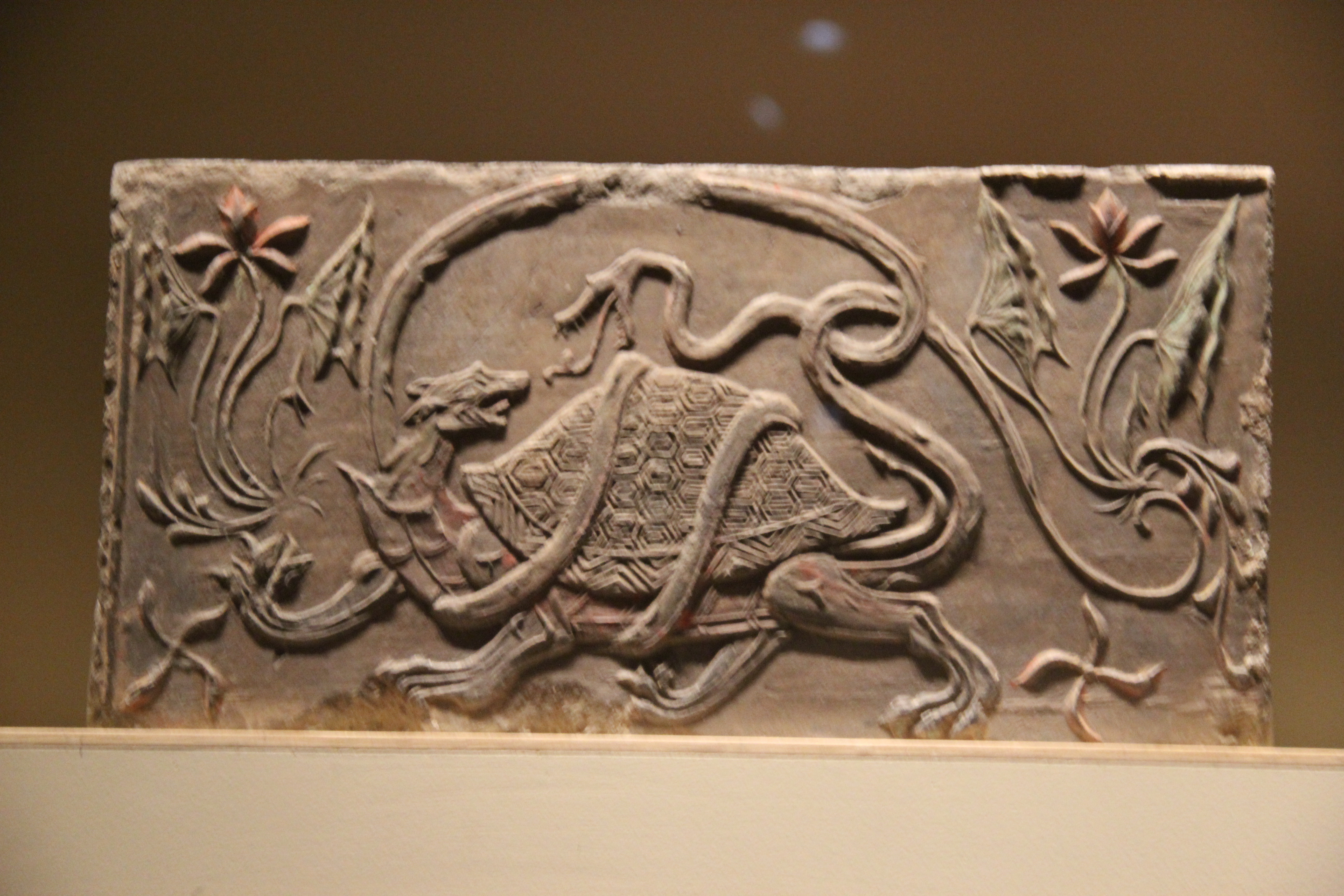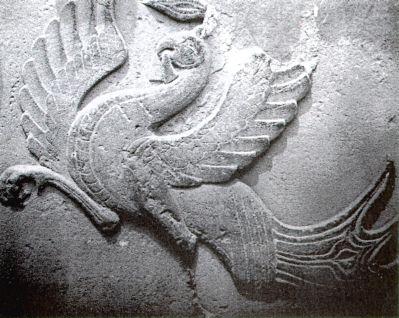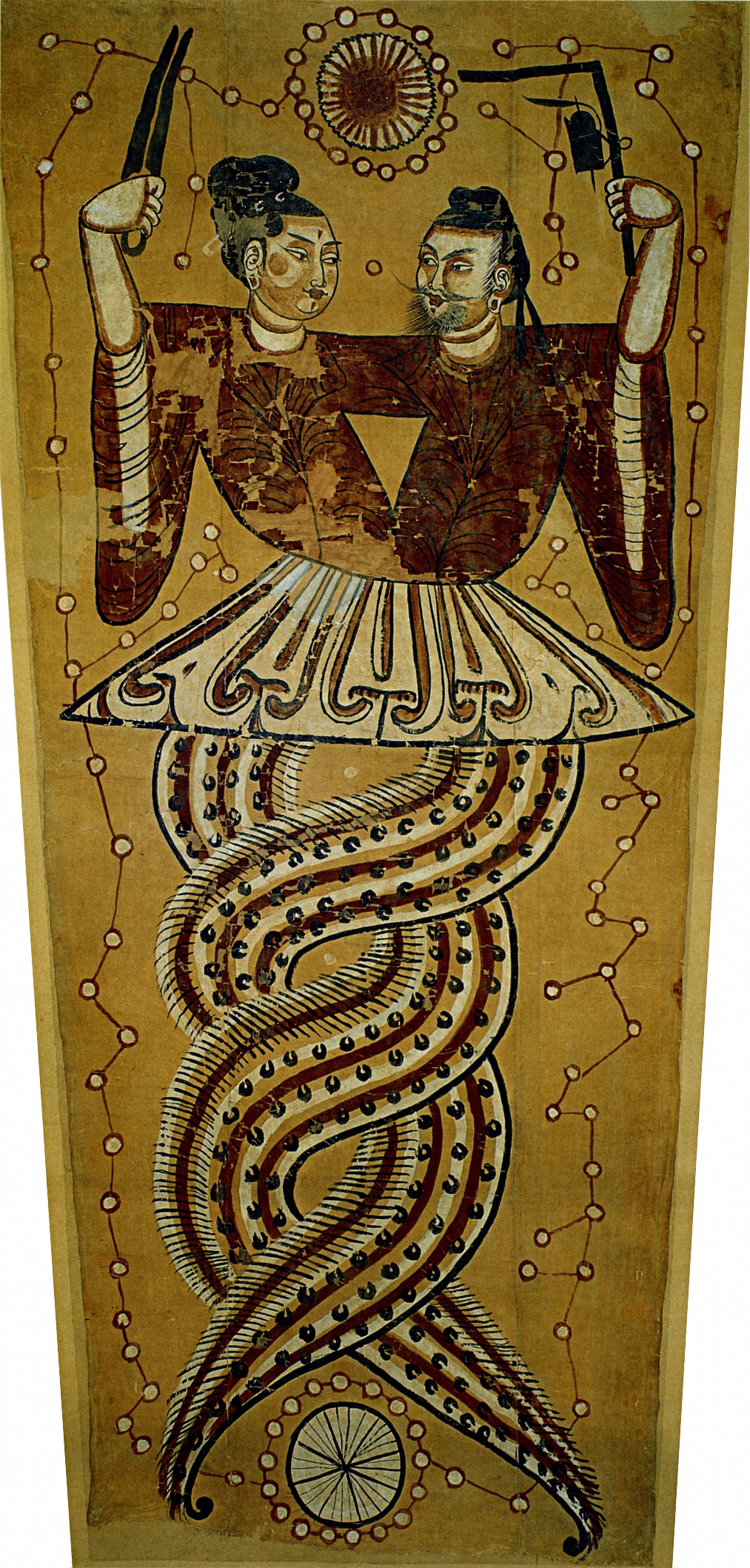|
Ancient Legends
''Ancient Legends'' is a Chinese television series based on the myths and legends associated with the origins of the Chinese civilisation. It is based on stories in Chinese mythology and the ancient classic ''Shan Hai Jing''. The series was first broadcast in mainland China on CCTV-1 from 15 August – 6 September 2010. Plot The story is based on the myths and legends associated with the origins of the Chinese civilisation and the earliest part of Chinese history under the Three Sovereigns and Five Emperors. After Pangu split Heaven and Earth and Nüwa created humankind, the world has been facing a plague. The Flower Goddess (the Jade Emperor's younger sister) and Shennong travel around China in search of a cure. They eventually sow the seeds of Heaven on Earth, causing flowers to blossom throughout the land, thus saving humankind. The plot also integrates other stories from Chinese mythology, such as Nüwa repairing the sky and Houyi shooting down nine suns. Cast * Vincent Chiao ... [...More Info...] [...Related Items...] OR: [Wikipedia] [Google] [Baidu] |
Vincent Chiao
Chiao En-chun (born 7 November 1967), also known as Vincent Chiao, is a Taiwanese actor and Mandopop Mandopop or Mandapop refers to Standard Chinese, Mandarin popular music. The genre has its origin in the jazz-influenced popular music of 1930s Shanghai known as Shidaiqu; with later influences coming from Japanese enka, Hong Kong's Cantopop, Ta ... singer. He is best known for portraying heroes in costume television dramas. Filmography Films Television series Discography Albums / EPs Other songs *"Duoshao Gushi Neng Wanmei" (多少故事能完美; "How Many Stories Are Required for Perfection") — insert song for the 2003 TV series ''Wolf Hero'' *"Wo de Tianxia" (我的天下; "My World" — duet with Liu Xiaoxue) — theme song for the 2012 TV series ''Beauty in the South'' ReferencesYesAsia: Vincent Chiao (China Version) [...More Info...] [...Related Items...] OR: [Wikipedia] [Google] [Baidu] |
Taibai Jinxing
Taibai Jinxing () is a deity in Chinese folk religion and Taoism. He is the son of Bai Di, the White Emperor, and his name means 'Evening Star'. The Fengshen Yanyi refers to him as an aide in the entourage of the Jade Emperor. In Chinese astronomy, Taibai Jinxing is the name for Venus. Legends Passing mention in several storytellers' tales reveals little about him, though one tale, a variant on the usual seduction story, claims that heaven was scandalized when Taibai Jinxing, charmed by two celestial weaving girls, was led off to a cave where he remained with them, alone, for forty-six days. This escapade was uncovered during a celestial inquiry into the cause of a lengthy drought. Taibai Jinxing, responsible for rain, having been discovered and escorted back to his post, quickly brought rain to the parched region, and the weaving girls saved their skins by retiring to remote celestial palaces. According to Taoist classical description, Taibai Jinxing is described as a goddes ... [...More Info...] [...Related Items...] OR: [Wikipedia] [Google] [Baidu] |
Yuqiang
Yuqiang (, alternatively Yujiang 禺疆 or Yujing 禺京), in Chinese mythology is one of the descendants of Huang Di, the "Yellow Emperor". Yuqiang was also the god of the north sea and a wind god. His father was Yuhao, another sea god. Some accounts (''Shanhaijing'' chapters 8 and 17) describe Yuqiang as having the body of a bird and the face of a human being, with a serpent mount for each foot that facilitated his travels.Yang, 245-246 See also *Chinese mythology Chinese mythology () is mythology that has been passed down in oral form or recorded in literature in the geographic area now known as Greater China. Chinese mythology includes many varied myths from regional and cultural traditions. Much of t ... Notes References *Yang, Lihui, ''et al.'' (2005). ''Handbook of Chinese Mythology''. New York: Oxford University Press. {{ISBN, 978-0-19-533263-6 Chinese gods ... [...More Info...] [...Related Items...] OR: [Wikipedia] [Google] [Baidu] |
Black Tortoise
The Black Tortoise () is one of the Four Symbols of the Chinese constellations. Despite its English name, it is usually depicted as a tortoise entwined together with a snake. The name used in East Asian languages does not mention either animal; the alternative name "Black Warrior ~ Dark Warrior ~ Mysterious Warrior" is a more faithful translation. It represents the north and the winter season, thus it is sometimes called Xuanwu (Black Tortoise, lit. Black Warrior) of the North (). In Japan, it is named Genbu. It is said to protect Kyoto on the north side, being one of the four guardian spirits that protect the city. It is represented by the Kenkun Shrine, which is located on top of Mt Funaoka in Kyoto. The creature's name is identical to that of the important Taoist god Xuanwu, who is sometimes (as in ''Journey to the West'') portrayed in the company of a turtle and a snake. History During the Han dynasty, people often wore jade pendants that were in the shape of turtl ... [...More Info...] [...Related Items...] OR: [Wikipedia] [Google] [Baidu] |
Vermilion Bird
The Vermilion Bird ( zh, c=朱雀, p=Zhūquè) is one of the Four Symbols of the Chinese constellations. According to Wu Xing, the Taoist five elemental system, it represents the Fire element, the direction south, and the season summer correspondingly. Thus it is sometimes called the Vermilion Bird of the South ( Chinese: , ). It is described as a red bird that resembles a pheasant with a five-colored plumage and is perpetually covered in flames. It is known as Suzaku in Japanese, Jujak in Korean and Chu Tước in Vietnamese. It is often mistaken for the Fenghuang due to similarities in appearance, but the two are different creatures. The Fenghuang is a legendary ruler of birds who is associated with the Chinese Empress in the same way the dragon is associated with the Emperor, while the Vermilion Bird is a mythological spirit creature of the Chinese constellations. Seven Mansions of the Vermilion Bird As with the other three Symbols, there are seven astrological "Mansions" ... [...More Info...] [...Related Items...] OR: [Wikipedia] [Google] [Baidu] |
White Tiger (Chinese Astronomy)
A white tiger is a tiger with a genetic condition affecting its pelt's pigmentation. White tiger, White Tiger or The White Tiger may also refer to: Arts, entertainment, and media Characters * White Tiger (comics), various Marvel Comics superheroes, including: ** White Tiger (Hector Ayala), the first to use the name ** White Tiger (''Heroes for Hire''), second ** White Tiger (Kasper Cole), third ** White Tiger (Angela del Toro), fourth ** White Tiger (Ava Ayala), fifth * White Tigers (Beyblade), a team in the anime ''Beyblade'' Film and TV * ''White Tiger'' (1923 film), a 1923 film directed by Tod Browning * ''White Tiger'' (1996 film), a 1996 film directed by Richard Martin * ''White Tiger'' (2012 film), a 2012 Russian WWII film * ''The White Tiger'' (2021 film), a 2021 Netflix film * ''Grambling's White Tiger'', a US TV movie made in 1981, released as ''White Tiger'' in Europe Literature * ''The White Tiger'' (Nathan novel), a 1987 novel by Robert Stuart Nathan * ''White ... [...More Info...] [...Related Items...] OR: [Wikipedia] [Google] [Baidu] |
Kitchen God
The Kitchen deity – also known as the Stove God, named Zao Jun, Zao Shen, Zao kimjah, Cokimjah or Zhang Lang – is the most important of a plethora of Chinese domestic gods that protect the hearth and family. The Kitchen God is recognized in Chinese folk religion, Chinese mythology, and Taoism. Under different names, he is also celebrated in several other Asian religions. It is believed that on the twenty third day of the twelfth lunar month, just before Chinese New Year, the Kitchen deity returns to Heaven to report the activities of every household over the past year to Yu Huang Da Di (玉皇大帝), the Jade Emperor. The Jade Emperor, emperor of the heavens, either rewards or punishes a family based on Zao Jun's yearly report. Story Zhang Lang Though there are many stories on how Zao Jun became the Kitchen God, the most popular one dates back to around the 2nd Century BC. Zao Jun was originally a mortal man living on earth whose name was Zhang Lang. He eventually became ... [...More Info...] [...Related Items...] OR: [Wikipedia] [Google] [Baidu] |
Xi Wangmu
The Queen Mother of the West, known by various local names, is a mother goddess in Chinese religion and mythology, also worshipped in neighbouring Asian countries, and attested from ancient times. From her name alone some of her most important characteristics are revealed: she is royal, female, and is associated with the west. The first historical information on her can be traced back to oracle bone inscriptions of the 15th century BCE that record sacrifices to a "Western Mother". Even though these inscriptions illustrate that she predates organized Taoism, she is most often associated with Taoism. The growing popularity of the Queen Mother of the West, as well as the beliefs that she was the dispenser of prosperity, longevity, and eternal bliss, took place during Han dynasty, in the 2nd century BCE, when the northern and western parts of China were able to be better known because of the opening of the Silk Road. Names ''Queen Mother of the West'' is a calque of Xiwangmu in ... [...More Info...] [...Related Items...] OR: [Wikipedia] [Google] [Baidu] |
Cangjie
Cangjie () is a legendary ancient Chinese figure said to have been an official historian of the Yellow Emperor and the inventor of Chinese characters. Legend has it that he had four eyes, and that when he invented the characters, the deities and ghosts cried and the sky rained millet. He is considered a legendary rather than historical figure, or at least not considered to be sole inventor of Chinese characters. Cangjie was the eponym for the (c. 220 BCE) ''Cangjiepian'' proto-dictionary, the Cangjie method of inputting characters into a computer, and a Martian rock visited by the Mars rover ''Spirit'', and named by the rover team. Legend of character creation There are several versions of the legend. One tells that shortly after unifying China, the Yellow Emperor, being dissatisfied with the "rope knot tying" method of recording information, charged Cangjie with the task of creating characters for writing. Cangjie then settled down on the bank of a river, and devoted himsel ... [...More Info...] [...Related Items...] OR: [Wikipedia] [Google] [Baidu] |
Tu Di Gong
Tudigong ( "Lord of the Soil and the Ground") or Tudishen ( "God of the Soil and the Ground"), also known simply as Tudi ( "Soil-Ground") is a tutelary deity of a locality and the human communities who inhabit it in Chinese folk religion and Taoism.The Encyclopedia of Malaysia, vol. Religions & Beliefs, edited by Prof. Dr M. Kamal Hassan & Dr. Ghazali bin Basri. Names Other names of the god include: * Tugong ( "Lord of the Soil"); * Tudiye ( "Soil-Ground Father"); * Dabogong ( "Great Elder Lord") or Bogong ( "Elder Lord"); * Sheshen ( "God of the Soil") or Shegong ( "Lord of the Soil"); * Tudijun ( "Ruler God of the Soil"). Extended titles of the god include: * Tudihuofushen ( "God who May Bless the Soil"); * Fudezhengshen ( "Right God of Blessing and Virtue") or Fudegong ( "Lord of Blessing and Virtue"). Commoners often call Tudigong "grandfather" (''yeye''), which reflects his close relationship with the common people. Variants Tudipo In the countryside, he is sometimes gi ... [...More Info...] [...Related Items...] OR: [Wikipedia] [Google] [Baidu] |
Yinglong
Yinglong () is a winged dragon and rain deity in ancient Chinese mythology. Name This legendary creature's name combines ''yìng'' "respond; correspond; answer; reply; agree; comply; consent; promise; adapt; apply" and ''lóng'' "Chinese dragon". Although the former character is also pronounced (with a different tone) ''yīng'' "should; ought to; need to; proper; suitable", ''yinglong'' definitively means "responsive dragon; responding dragon" and not "proper dragon". Classical usages The Chinese classics frequently mention ''yinglong'' "a winged rain-dragon" in myths about the Three Sovereigns and Five Emperors, especially the Yellow Emperor and his alleged descendant King Yu. The examples below, limited to books with English translations, are roughly arranged in chronological order, although some heterogeneous texts have uncertain dates of composition. ''Chuci'' The (3rd–2nd centuries BCE) ''Chu Ci'' "Songs of Chu" mentions Yinglong helping King Yu , the legenda ... [...More Info...] [...Related Items...] OR: [Wikipedia] [Google] [Baidu] |





